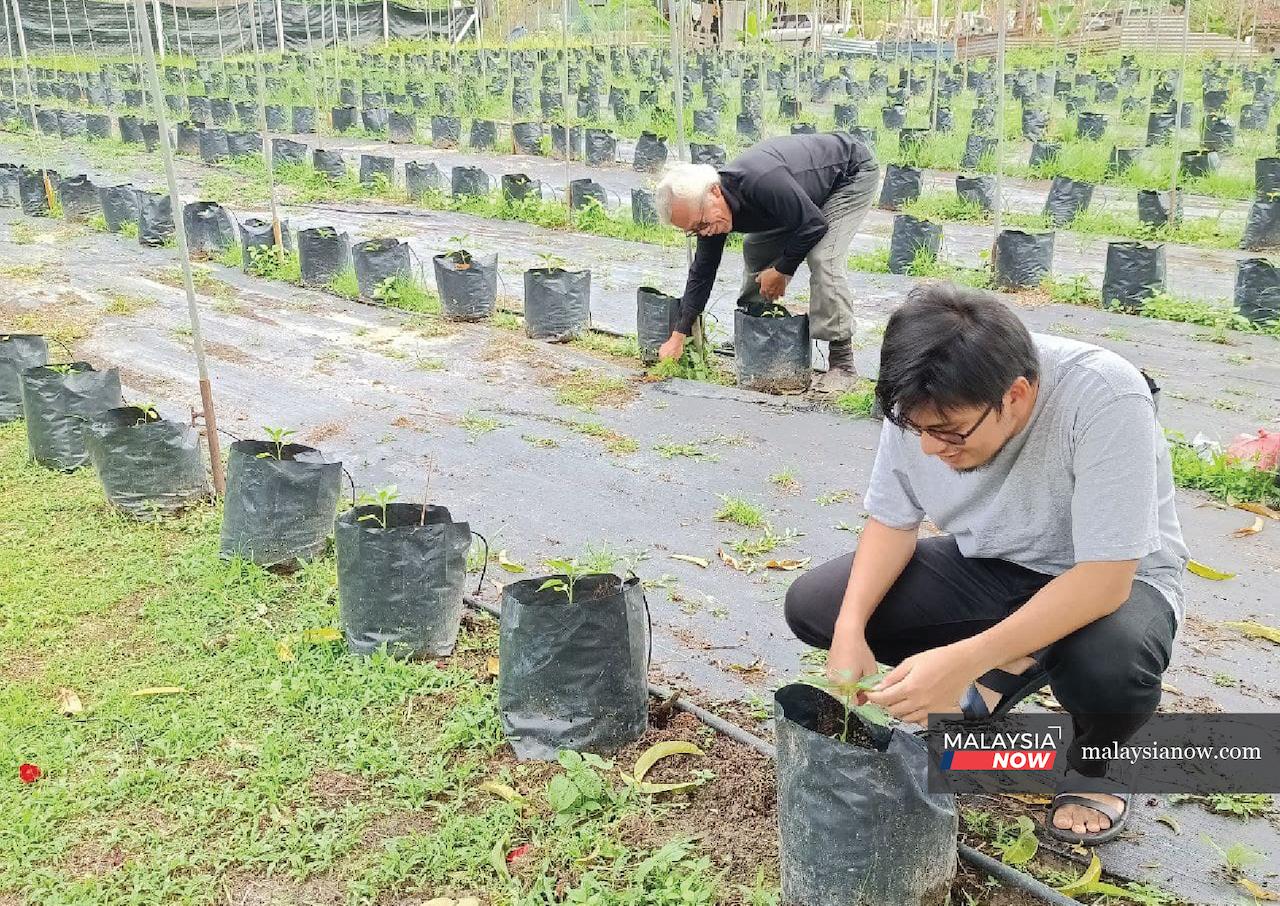Pandemic career changes, from IT and consultancy to farming and cendol
Some who made the shift are grateful that they did, as Covid-19 lockdowns keep businesses on their toes.
Just In
While many businesses and workers are battening down the hatches in a bid to weather the economic storm of Covid-19, which has seen three major lockdowns imposed throughout the country so far, others are taking a different approach and simply opting for a change in career.
Muhammad ‘Alif Fitri Mohd Arif spent six years working as a freelance IT programmer in the Klang Valley. Towards the end of 2019, though, jobs became more and more scarce and he knew he would soon have to make a decision about what to do next.
As he was looking for job opportunities elsewhere, he met a friend who was involved in agriculture.
“He uses fertigation technology on his farm,” Alif told MalaysiaNow. “It has an automatic watering system for the plants he is working on. I am passionate about technology so the use of that system caught my attention.”
The problem was, he had no land on which to work. Undaunted, he asked around among his family members and eventually found a relative who allowed him to cultivate a plot of land in Sepang, Selangor, that had been unused for 60 years.
Armed with his savings as capital, he embarked on his new career as a farmer. What began as a small cucumber plot measuring a quarter of an acre gradually expanded to one and a half acres, with chilli plants growing alongside the original cucumbers.
The 29-year-old considers himself lucky to have made the career switch before the pandemic, which broke out in earnest a few months after he started his farm.
“When the movement control order (MCO) started, farming was considered an essential service so I could still earn an income throughout the period.”
Others, like former consultant Maazan Mahamat Ajmi, made the switch after experiencing the impact of the Covid-19 crisis on their livelihood.
Maazan had been a consultant in town planning for 10 years before he decided to switch to a food and beverage (F&B) business instead. He now sells cendol at a roadside stall in Shah Alam.
“During the MCO, my company warned us that they would have to lay off staff. I didn’t want to wait, so I called it a day and went back to my home town.
“It then occurred to me that this was the time to start an F&B business, a thought that for years had lingered only at the back of my mind.”

Venturing into F&B seemed like a natural step for him as he had spent his youth helping his mother sell nasi lemak.
“I don’t think I would be able to survive in the current situation had I opened a business in another sector,” he told MalaysiaNow.
Economist Barjoyai Bardai agreed that those who make a career switch to the essential sectors would find a silver lining.
“People should not be dependent on one profession alone,” he said.
There is also the added benefit of acquiring new skills and utilising existing skills in a new environment, which could also come in handy should they one day return to their old field.
“For example, an IT programmer who becomes a farmer may be able to bring artificial intelligence to farming, or he can impart his knowledge in farming to develop an app or software related to agriculture.”
Yeah Kim Leng, a professor of economics at Sunway University, called for greater clarity in the classification of activities as essential or non-essential.
“Essentiality differs according to public health, national security, livelihoods, social and economic functions or a combination of these factors,” he said.
“Typically essential services refer to basic or fundamental activities that are critical for meeting society’s basic needs. But how essential they are depends on the nature of the problem or threat.”
In the case of Covid-19, he said there would likely be an accelerated investment in healthcare and medical research as well as digitalisation and e-commerce across the various economic sectors once the pandemic is over.
Meanwhile, on his farm, Alif is still happy with his decision.
“What I like about farming is that the products are always in demand. When I was working in the IT sector, my job depended on my clients’ events and presentations.”
And farm work is not as backbreaking as it is made out to be, at least not for him.
“Technology nowadays has made things much easier,” he said. “I only have to set up the fertigation system and control the timing.”
But while the change in career has made it easier for him to meet the challenges of Covid-19, he still thinks about his old life in the IT sector every now and then.
“If in the future I am offered a freelance IT project or a job, I would take it,” he said.
“I could do it in my free time. To leave behind my skills in IT would be a waste.”
Subscribe to our newsletter
To be updated with all the latest news and analyses daily.
